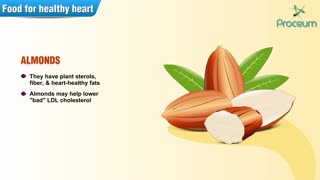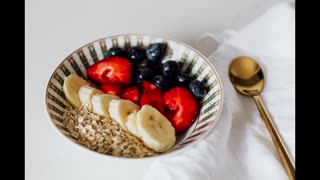Getting Ready For Winter
It is time to get our bodies ready for winter. In the Berkshire Mountains in Massachusetts, we just had our first snowfall. The temperatures dropped overnight into the teens.
More than 4 decades ago, I first studied the macrobiotic philosophy of health which included eating according to the seasons. I went on to study this understanding of balancing with the seasons in traditional systems of oriental medicine.
Balancing with the seasons is based on an energetic understanding of health, food and lifestyle. This energetic understanding is the basis of all macrobiotic longevity health systems around the world. It is included in my modern 21st century Full Spectrum Macrobiotic Approach.
One basic energetic macrobiotic understanding of food that is applicable to staying healthy with the winter season is that food has warming or cooling properties. Since winter is naturally cold, it is important to eat more warming foods and less cooling foods. Even with our modern systems of central heating, it is best not to have your house too warm and to eat for warmth to keep your body more vital.
Warming foods include heavier grains. Preparations such as traditional sourdough bread, oats, buckwheat, sweet rice and cooked vegetables are good. More animal products can be eaten and other adjustments made according to your needs, health condition and dietary preferences.
Red meat and fatty fish such as wild salmon and sardines are more warming. If you eat these types of foods, it is good to have them more often. Lamb and organ meat is particularly warming. All animal foods such as meat, fish, eggs and cheese in general can be eaten more often as they generate heat due to thier very heavy condensed quality. In winter, these foods can be cooked in more warming styles such as baking, broiling and stews. Modest portions of 4-6 oz. are best balanced by meals centered on vegetables and grains.
Vegetarians can create more heat in their bodies by eating the warming grains above, focusing on cooked foods and eating often grass fed cheese and eggs.
Besides essential supplementation with vitamins, it would be best for vegans to focus on warming grains, cooked vegetables, and have sautéed vegetables and grains often to create heat.
In addition, vegans and vegetarians should avoid raw vegetables, raw fruit, tropical fruit and tomatoes in the winter. All of these foods are naturally cooling. Both vegetarians and vegans usually have cold metabolic conditions due to a lack of or low amount of animal foods. Cool conditions lower the metabolism which can lead to disease. Sometimes vegans think it is a benefit that heat does not bother them in the summer, when in fact it is not always a healthy sign. Raw food is naturally cooling. This is one reason some raw vegetables and salads are appealing in the summer heat.
Another traditional macrobiotic longevity concept is that the digestive system is like a stove and cooking pot. Food needs to be mostly cooked all year round for better digestion. The modern explanation is that human beings don't have a rumen, a stomach with bacteria to break down raw fiber. Because of this, a human diet should be mostly cooked in order to break down the fiber to release the nutrients (and energy) from food.
The winter's cold makes the body burn hotter. Because of this, the body can handle eating more fats to create heat. If you are eating animal fats, these have the most warming effect from natural animal foods such as meat; grass fed raw cheese and butter. The best vegetable fats for cooking that create heat are olive oil and coconut oil. Be sure to serve fats with salt and mild spice such as ginger, black pepper or garlic for better digestion.
Foods to limit or avoid to keep healthy with the seasons are those that are naturally cooling including raw vegetables, raw fruit, excessive sugars, alcohol, coffee, tea, soy products, very hot spices, tomatoes, eggplant, and tropical fruit.
Lastly, eating enough calories in one's diet is extremely important to generate body warmth. Winter is not a time for fasting or skipping meals. Most people find that their hunger naturally increases in the winter. Eat a good quality diet to stay healthy and eat more in the winter not less. 1
Eating with the seasons is fundamental to staying well in the winter. Now is the time to begin building our internal warmth.
-
 0:52
0:52
Health and fitness
2 years agoFoods that are good for your heart
55 -
 1:10
1:10
exercisingevolve
1 year agoSWALLOW 3 DROPS TO MELT 1.5LBS EVERY 48 HOURS
6 -
 9:44
9:44
Stew Peters Network
1 year agoNitric Oxide Good For Cardio Heart Health: Cardio Miracle Can Give Second Chance To Vaccine Injured
8.24K12 -
 11:31
11:31
Random and Boring TV
7 months agoColorado Buffalo Stamp Out Obesity || CU Researchers Discover New Obesity Treatment
118 -
![OVER 50 CASTOR OIL SECRETS: A MUST HAVE PREPPER SUPPLY [2023-12-02] - SOLARGIRL HOMESTEAD (VIDEO)](https://hugh.cdn.rumble.cloud/s/s8/1/U/F/D/2/UFD2o.0kob-small-OVER-50-CASTOR-OIL-SECRETS-.jpg) 13:56
13:56
Patriot Vibes 1Q7
5 months agoOVER 50 CASTOR OIL SECRETS: A MUST HAVE PREPPER SUPPLY [2023-12-02] - SOLARGIRL HOMESTEAD (VIDEO)
1.12K5 -
 0:46
0:46
HoangVanTrung
1 year agoPeak Biome Peak BioBoost - Prebiotic Fiber Supplement - Flavorless Digestive Nutritional Supplements
51 -
 0:39
0:39
coachlukedawn
7 months agoTHICK Neck Season
20 -
 2:06
2:06
EnergyMattersLLC
4 months agoLab-Grown Fake Chicken: Gross, Dangerous Or Both?
42 -
 4:40
4:40
amoha
1 year agoI lost 47.3kg in 6 months. Sharing all my advice, and hoping to help others.
1 -
 2:19
2:19
Mr
1 year ago5 reasons why you must eat the banana
7